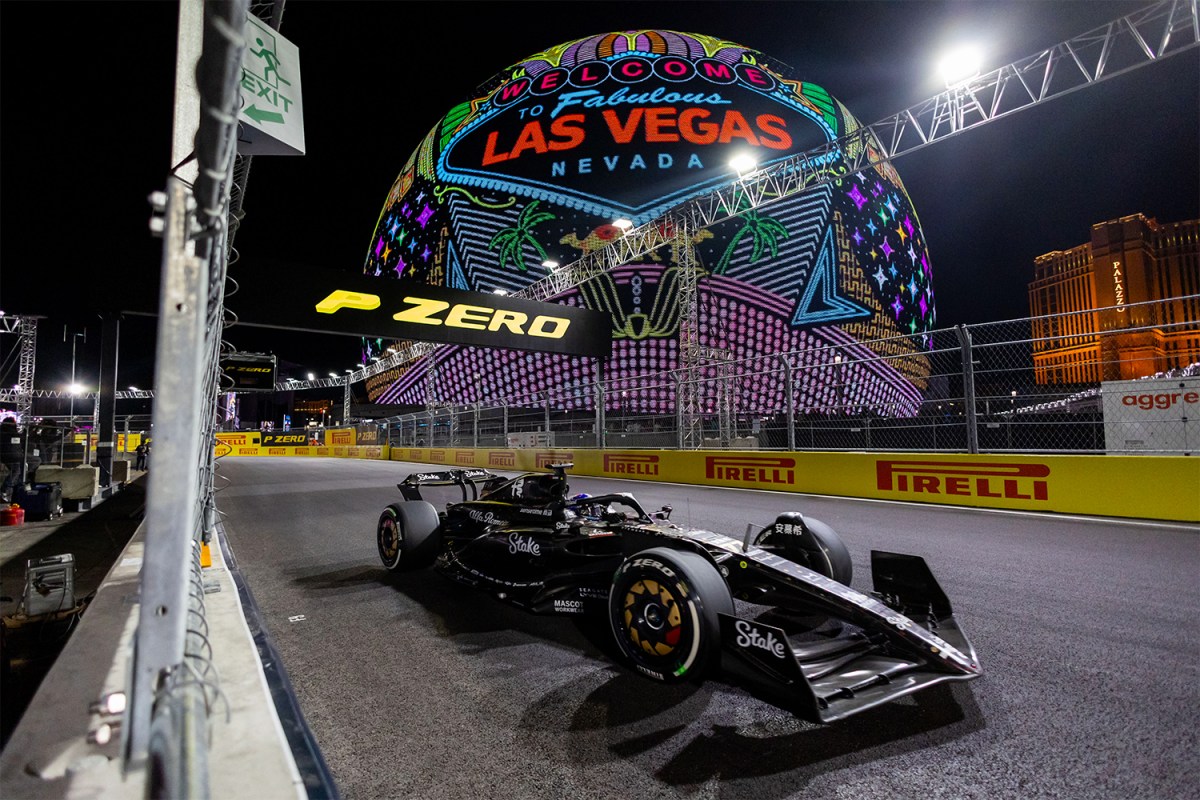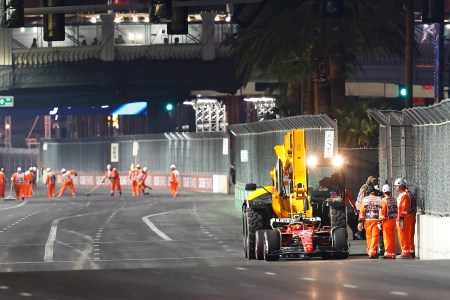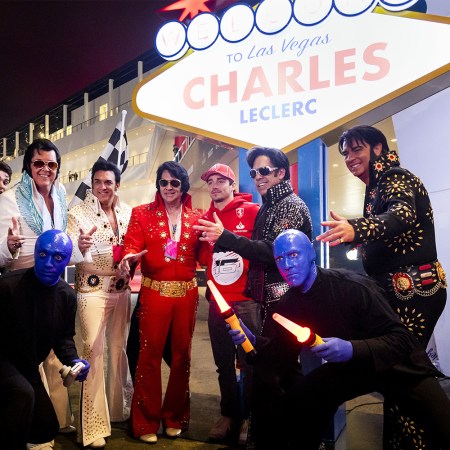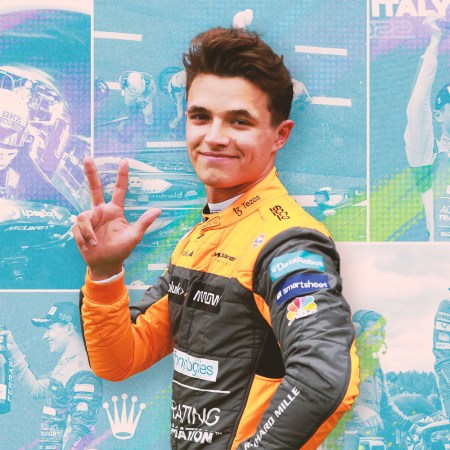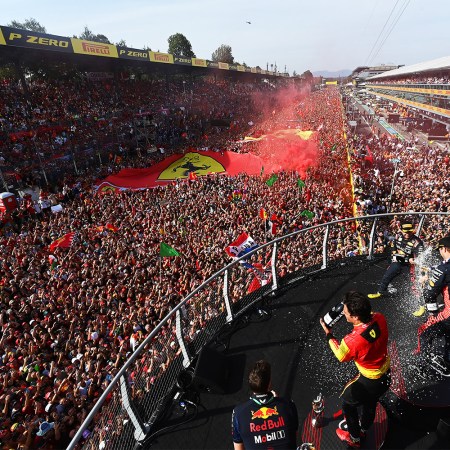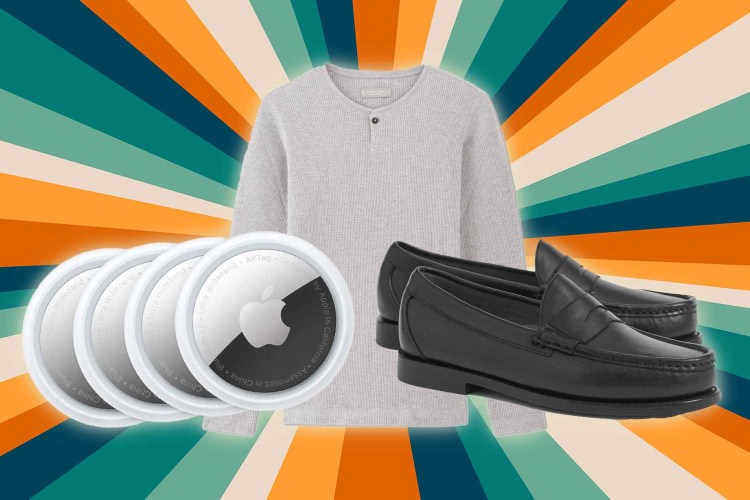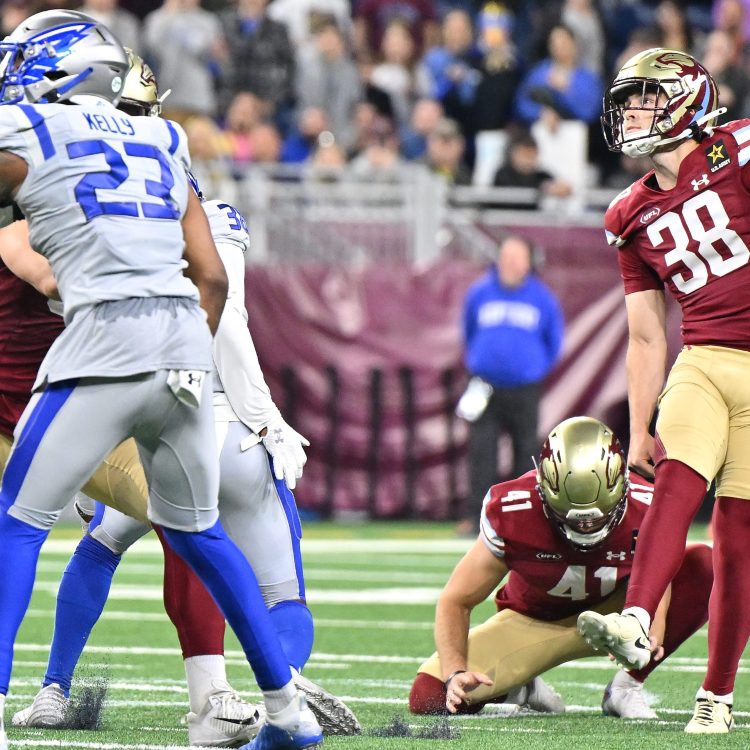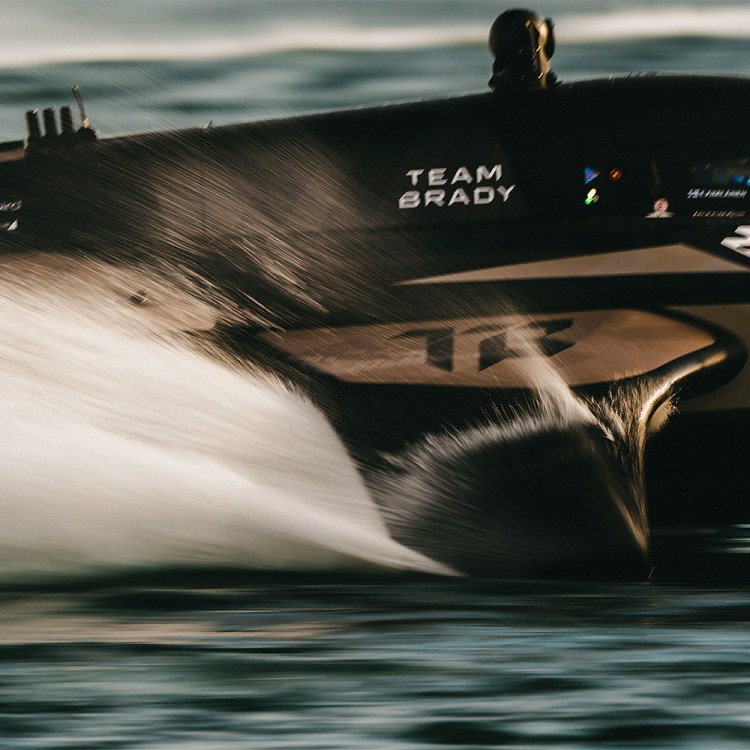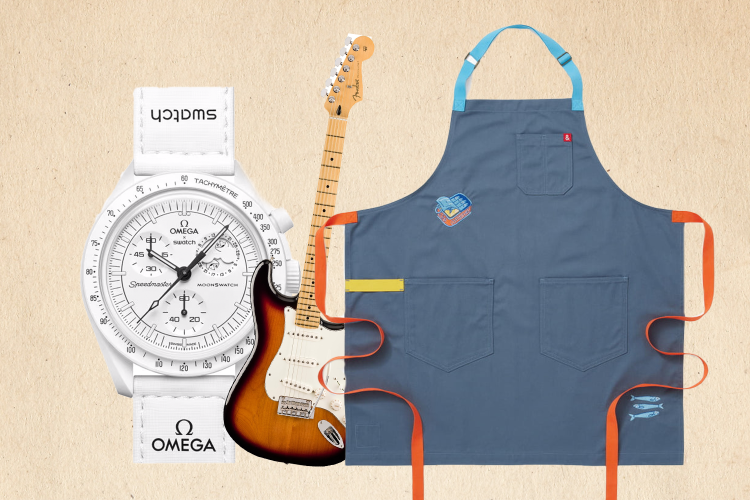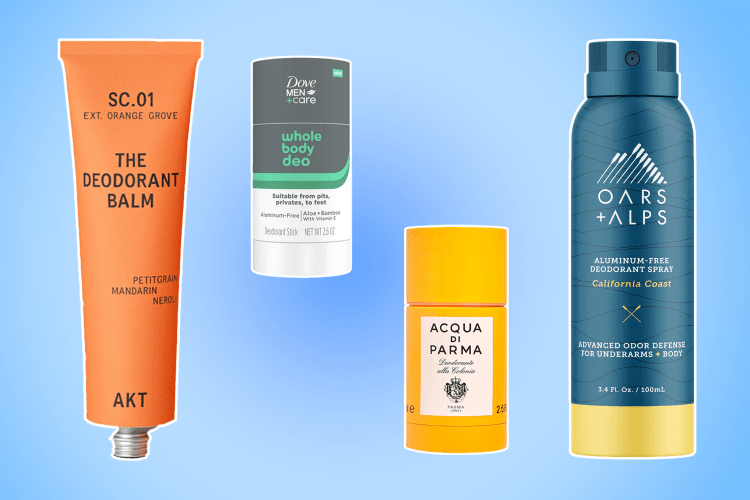The inaugural Las Vegas Grand Prix, held on Saturday night, was one of those events that found its way into the lexicon of sports fans around the world, regardless of your interest in Formula 1.
This was a race many, many years in the making, and it had the promise to be F1’s ultimate spectacle, debuting a new, permanent Paddock Club building supporting a street track that screams down the heart of the Strip. With stunning sightlines and all of the madness and reputation in tow that comes with anything in Vegas, this theoretically checked all of the boxes to become the next great American sporting event.
Then, as race day closed in, reality hit. A variety of growing pains and first-year miscues showed that F1 didn’t take into full account the enormity of the endeavor, which led to an upheaval in local life as the street track was prepared (the previous F1 races in Vegas, in 1981 and ‘82, took place in a parking lot at Caesars Palace). There’s also the infamous loose drain cover incident, which would have been the most talked-about action on the track had the actual race not been as gripping.
While there were questions about the design of the track, when it came down to it, those doubters were silenced. Ferrari’s Charles Leclerc and Red Bull’s Sergio Pérez had a fantastic battle during the last quarter of the final lap, while Max Verstappen continued his dominance with the win.
As a guest of the BWT Alpine F1 team, I got a close look with rare access throughout race week, and attempted to wrap my head around the enormity of the event. There will continue to be a lot of talk about whether the race was successful, but from where I was standing, it depended on where you stood in the pecking order.
The Haves and the Have Nots
What’s clear is that, on the ground in Vegas, your experience of the race was dependent on which side of the Paddock Club you were on. In the general admission area, scores of empty seats surely gave a bad impression for those in the grandstands (and maybe on TV). However, if you were in the Paddock Club, you left feeling like the Las Vegas Grand Prix had an absolute blockbuster of a first year.
Money drives this race, perhaps unlike any other in F1, and that’s clear by the sheer number of people who through connection, means or circumstance found themselves in the race’s cushy, $3,000-per-night hospitality area filled with endless booze, food and people watching.
Keep in mind that those same people paying eye-watering prices had to enter and exit through a maze of dirt and concrete just like everyone else. (We assumed that only the A-list celebrities had private entrances and exits.) The in-person F1 experience is incredibly hierarchical, with no less than 20 different levels of access through QR-code badging.
In It for the Long-Term
What F1 definitely got wrong was the local impact. Of the several Vegas residents I spoke with — hotel worker, Uber driver, etc. — they had few positive things to say about how the expansive construction and intrusions tore up the Strip and made commuting general hell for four months prior to this past weekend. Various estimates suggest it will take up to eight weeks to return the road to pre-race operating condition.
Other locals had a more nuanced reaction. There wasn’t as much of a wholesale negativity towards the race as widely reported, but instead a more profound disappointment with the various logistical barriers that made working life extremely difficult for anyone in and around the Strip. It sounded like this was largely due to a lack of communication and common sense built around the race’s infrastructure. That is potentially the Grand Prix’s Achilles heel — F1 and the city have to figure out how to make the race feel like a welcome addition for all involved, not just for spectators and various associated bank accounts.
The Biggest Threat to F1’s $500M Vegas Grand Prix Is…a Loose Drain Cover?
Our correspondent on the Strip details the (potentially overblown) fallout from the practice incident, which damaged three cars, most significantly that of Ferrari’s Carlos SainzGetting anywhere on the Strip required navigating closed walkways, new temporary ones and an extra 20-30 minutes on your journey, often with no directional signage. This was an issue at the racetrack in various capacities as well.
When chatting with Alpine F1 interim principal Bruno Famin one night, he brought up an excellent point about how the ridiculously late start times affect the mental and physical health of the teams, especially near the end of the F1 season. (Most team personnel will now fly straight to Abu Dhabi for the season’s last race.) While there isn’t one straight answer about why all of the racing events needed to start at 8 p.m. or later, there was a repeated refrain throughout the weekend from anyone loosely connected to a team: they all kept saying they didn’t know what time or day it was. Race end times between midnight and 2 a.m. will do that. If anyone can agree on at least one improvement for this race, it’s that it needs to start at least three hours earlier and end before midnight. It’s a health issue.
The city and F1 entered a 10-year deal for this race, and it’s likely that teams will speak up about the timing. The folks at Alpine, who I watch throughout the week, were pushing consecutive nights to 2 and 3 a.m., on top of considerable European jetlag.
A Race Unlike Any Other
F1 knew that many of its sins would be forgiven if they could just stick the landing on Saturday night, and in the end, they delivered — and then some. They managed to create a spectacle that only Las Vegas could offer.
Of course $15 million machines zooming down the Strip and around the Sphere looks absolutely fantastic on TV. At that point, who cares about half-empty stands? Adding to the mystique was celebrity attendance of a rarified level. It’s clear that this is now the new standard for hospitality, and it was certainly the hottest place to see and be seen.
I am typically not one to care about the celebrity sphere, but there were just so many notable names that I either walked by or even shared a moment with in the Paddock Club. Rihanna, Common, Zach Braff, Colin Kaepernick, Patrick Dempsey, Cara Delevingne, the list goes on — and then there’s that time Thursday night when I shared a few hands of blackjack with Damian Lewis and Alison Mosshart at MGM’s on-site gambling suite (for funny money, of course). This is why certain people were forking over $15,000 for the weekend access. These opportunities just don’t happen elsewhere.
Outside of the Paddock Club was a much different story. Even on race night, most grandstands outside of the main starting line were half empty. If the reported 315,000 in attendance through the weekend seems inflated, it’s possible they’re taking into account the scores of people watching on the Strip and not formally a part of the race’s fenced-off blueprint. But this is a race that doesn’t need packed stands. The ever-changing images on the Sphere around turns 5-9 are more than enough to compensate.
After spending four days in the Paddock Club and around town, I can report that the Las Vegas Grand Prix represents a new cultural chapter for American sports. This level of spectacle and grandiose excess is now what will be expected of the organizers behind our most significant sporting events. Look for events like your local Super Bowl (coming to Vegas shortly) and World Cup Final to step up their games in response.
In Vegas, few things are a sure bet, but it seems undeniable that this race is going to become a cornerstone of the F1 calendar, all other circumstances and ramifications be damned. This is a spectacle in a way that only Las Vegas can provide, and as long as the lights are glistening on the Strip, the reverberating thunder of F1 will most certainly follow.
Whether you’re looking to get into shape, or just get out of a funk, The Charge has got you covered. Sign up for our new wellness newsletter today.
